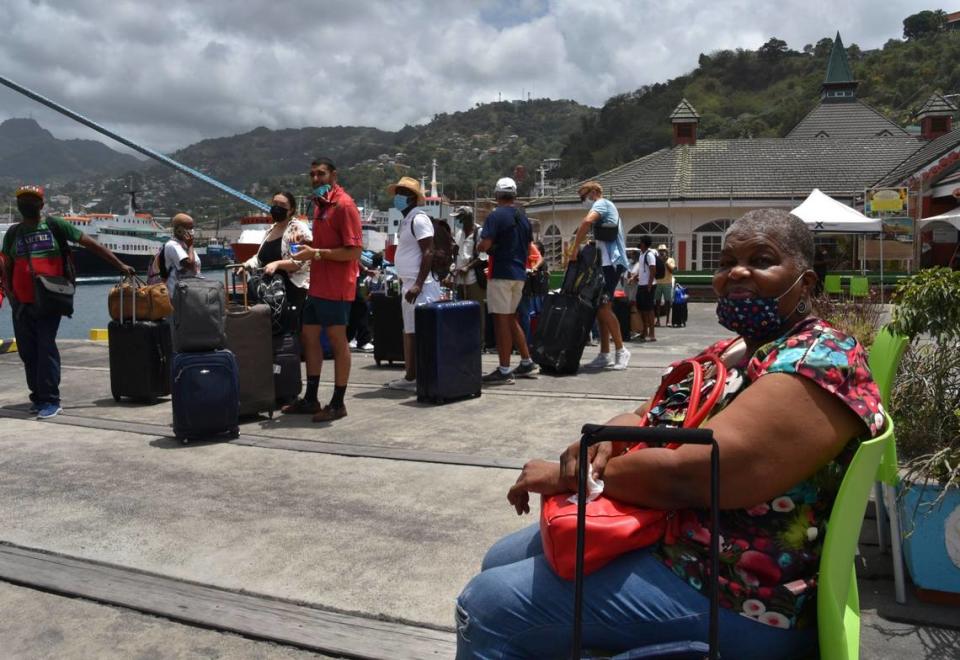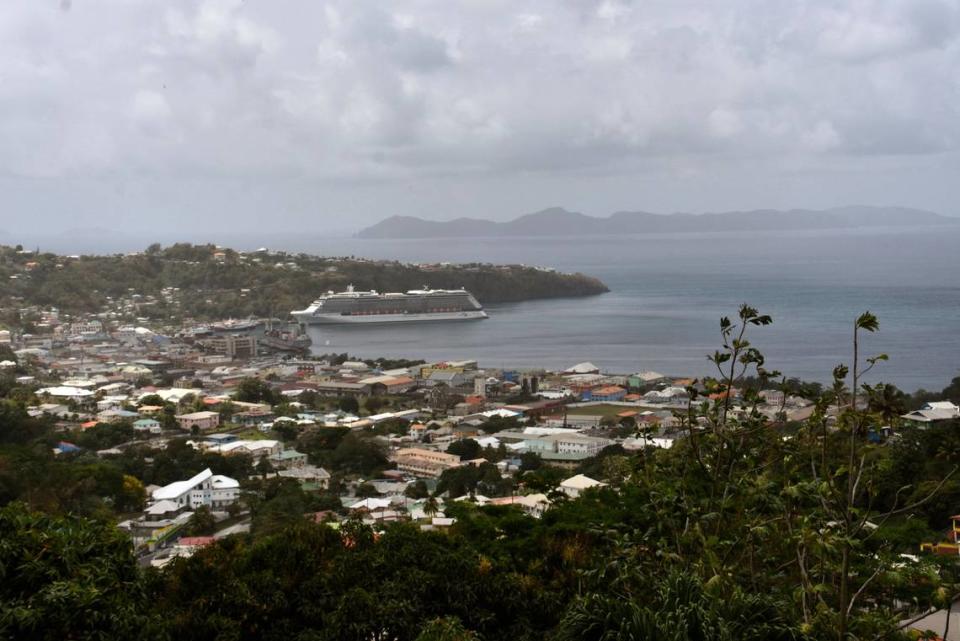‘All gone’: St. Vincent prime minister appeals for aid amid ongoing volcano eruption
With one-third of his eastern Caribbean nation transformed into “a relative wasteland” from the erupting La Soufrière volcano, the prime minister of St. Vincent and the Grenadines Tuesday appealed to the international community for help with his country’s recovery.
“It’s an extraordinary, existential challenge that is facing us,” Prime Minister Ralph Gonsalves said.
The leader joined the United Nations in launching an urgent appeal for assistance to address the budding humanitarian crisis and multiple challenges created by the volcano’s ongoing explosions. They are seeking nearly $29.2 million in assistance to cover the next six months and help start the recovery.
Of the 20,000 people evacuated from the red zone after the volcano first unleashed ash on April 9, three-quarters are identified by the U.N. as in critical need of immediate assistance. The disaster has destroyed crops on the northern third of the island of St. Vincent, where La Soufrière is located, and is leading to a water shortage. Schools have been disrupted because the buildings are being used as shelters, and two of the island’s five hospitals had to be evacuated.
“Think of us feeding on a daily basis, three meals over 10-12,000 people. It’s a herculean task,” Gonsalves said. “This is the midnight hour of our need and we are expecting the international community to come to our aid.”

After more than 40 years of being dormant, the La Soufrière volcano unleashed volcanic ash earlier this month, followed by an avalanche of hot gases and debris days later. The explosion forced an evacuation order and the closing of the country’s international airport, which remains shuttered due to the ongoing ash cleanup. Scientists warn that the eruptions could go on for six months or more.
Gonsalves said that while damage assessments are ongoing, the island’s recovery will cost “many millions of dollars and we’re not talking about just tens of millions. It’s going to be in excess of that.” Scientists estimate that the volcano has emitted more than 100 cubic meters of ash, which now needs to be cleaned up, he noted. There’s also the need to provide social support, water, healthcare and housing.
He said the northern part of the country, where there are agricultural fields, fishing spots and tourism operations, is “all gone. ... It is now a relative wasteland. It’s desolation.”

Gonsalves was joined by Didier Trebucq, the U.N. resident coordinator for Barbados and the eastern Caribbean. Trebucq, who traveled to the island by boat, visited the red and orange zones heavily affected by the ashfall and rumblings with Gonsalves over the weekend.
He described the impact of the ashfall as “apocalyptic.”
“We have seen many roofs that have collapsed, the roads have been turned into tracks,” Trebucq said. “The crops are all devastated in this part of the island.”
He added that the situation is not sustainable without assistance for those who were evacuated, as well as for those hosting evacuees in their homes.
“The vast majority of the people of this island has been affected,” Trebucq said. “The health facilities as well have been affected; two out of the five hospitals had to be evacuated, and this is really putting even more pressure on the remaining health system and there is still a lot of uncertainty.”
Trebucq said in addition to having to resettle residents and repair homes, ash will need to be cleaned up in St. Vincent and nearby islands including Barbados. The country has also been heavily affected by ash in its atmosphere. The volcano activity is happening in the midst of the coronavirus pandemic, which Trebucq said they remain concerned about, and two months before the start of hurricane season.
Scientists with the University of the West Indies Seismic Research Center, which has been closely monitoring the volcano, have warned the island could be dealing with further ashfalls and eruptions for some time. The last big eruption on St. Vincent in 1979 went on for seven months, Gonsalves noted. Another one, in 1902, which the current eruption appears to be mimicking, lasted longer.
Unlike that eruption, which killed more than 1,600, there have been no reported deaths from the ongoing explosions. But the humanitarian challenges remain.
“We have to deal with lives, with livelihoods during that period,” Gonsalves said. “Even when we clean up, all of the ash, and we go back, it’s going to take several months for the crops to grow, and there are a lot of trees, which are going to take longer — coconut trees, breadfruit trees, fruit trees and the like, bananas, plantains.”

